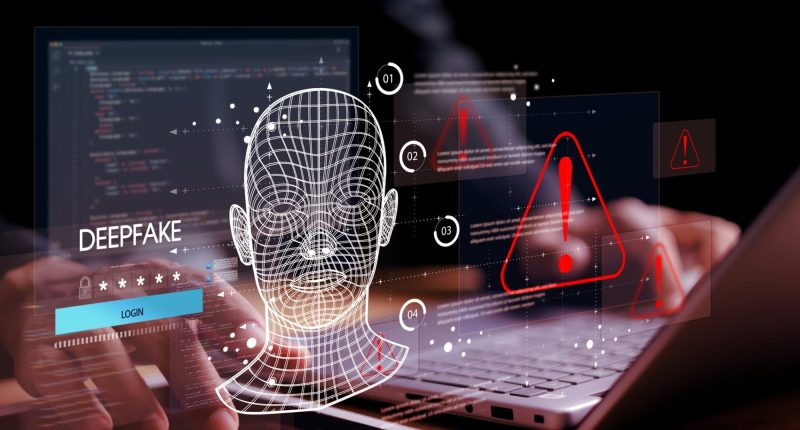Share this @internewscast.com
Opinions expressed by Entrepreneur contributors are their own.
In January 2024, a finance director at a UK firm mistakenly sent $25 million to fraudsters following a video call with someone who convincingly appeared to be the company’s CFO — a highly advanced deepfake. This event is not unique. According to a report by Juniper Research, the global losses anticipated from e-commerce fraud will skyrocket from $44 billion in 2024 to $107 billion by 2029, marking a dramatic 141% rise.
Exacerbating the issue, a striking 60% of consumers now question the authenticity of online content, expressing concerns over AI-generated misinformation, deepfakes, and the inundation of content, as highlighted in Accenture’s Life Trends 2025 report survey.
For entrepreneurs and business leaders, the risks are dual: the potential for reputational harm from misleading synthetic media and legal ramifications as governments around the world implement tough AI disclosure regulations.
Current solutions like watermarking and AI detection tools are reactive by nature. Watermarking can be easily removed or forged, while AI detectors fail to identify manipulated content by nearly 30%, according to University of Pennsylvania researchers, by simple tweaks like added whitespace or typos. Legal actions, meanwhile, often come too late to mitigate damage.
Thankfully, a solution exists: blockchain + AI-powered digital twins.
The rise of digital twins
Digital twins or avatars are a bridge between the physical and digital world, helping optimize systems and personalize our day-to-day experiences (travel, work, shop, healthcare system and beyond). By embedding AI avatars with NFT passports, which act as tamper-proof digital certificates stored on the blockchain, these IDs create a verifiable record of an avatar’s origin and any subsequent modifications — ensuring entrepreneurs and businesses can verify authenticity at source rather than scrambling to detect fakes after the fact.
Consumer trust is inextricably linked to transparency. A 2024 Edelman report found that 62% of consumers only trust AI-generated content if its provenance can be verified. Blockchain-based authentication addresses this demand head-on. There is a growing trend of integrating NFT-based digital passports across various industries to enhance product authenticity, traceability and customer engagement.
The corporate world is already adopting this approach. For instance, Breitling, a Swiss luxury watchmaker, partnered with Arianee to provide each watch with a blockchain-based digital passport. Since then, there have been over 200,000 NFTs created, with approximately 30% customer adoption. In the Art & Collectibles industry, Arteïa launched its Arteïa Connect, a secure digital passport for artworks anchored on the blockchain and securely linked to the piece via encrypted NFC tags, ensuring authenticity and provenance.
Even the healthcare industry is adopting similar frameworks. The UK NHS’s Digital Staff Passport uses blockchain to authenticate medical professionals, while Mayo Clinic partnered with Safe Health Systems to deploy AI-powered provider IDs for telehealth — critical steps to combat impersonation scams. By certifying authenticity at the point of creation, businesses are thus fostering trust while mitigating the risk of reputational damage.
Navigating the AI wave
For entrepreneurs, navigating the AI landscape requires a proactive approach.
First, recognize that public-facing figures are prime targets for deepfake manipulation. Regular monitoring for fraudulent content is essential. Second, anchor digital identities to verifiable technologies like blockchain. Third, staying ahead of regulatory shifts is equally critical. The EU AI Act, the world’s first comprehensive AI law set to take effect this year, imposes fines of up to 7% of global revenue for undisclosed synthetic media.
Similar measures are emerging worldwide, from the US Deepfake Act to India’s draft deepfake penalties, signaling a global trend toward stricter oversight. Regulators want proof, not promises. The blockchain’s immutable audit trails provide exactly that. And, finally, treat digital identity protection with the same rigor as cybersecurity. Assign accountability within your team, conduct regular audits of AI tools, and consider partnerships with insurers specializing in deepfake liability.
The future path is clear: Deepfake fraud is no longer a hypothetical threat but a present-day liability. While detection tools play an important role, blockchain-based authentication offers a proactive defense mechanism. Just like SSL certificates secure ecommerce, NFT passports can do the same for AI by securing identity and authenticity.
For entrepreneurs and businesses, the choice is clear: to build trust through verification now, or risk losing everything to a synthetic scam tomorrow. In the rapidly advancing age of AI, authenticity won’t just be important, it will be the foundation of trust and competitive advantage.
In January 2024, a finance director at a UK firm transferred $25 million to fraudsters after a video call with what appeared to be the company’s CFO — a very sophisticated deepfake. This incident is far from isolated. The global losses projected due to ecommerce fraud surged from US$44 billion in 2024 to $107 billion in 2029; a massive 141% increase, according to a report from Juniper Research.
Compounding the problem, a staggering 60% of consumers now doubt the authenticity of online content, citing concerns over AI-generated misinformation, deepfakes and content overload, as revealed in Accenture’s Life Trends 2025 report survey.
For entrepreneurs and business leaders, the threats are twofold: reputational damage from deceptive synthetic media and legal liability as governments worldwide enact stringent AI disclosure laws.
The rest of this article is locked.
Join Entrepreneur+ today for access.






